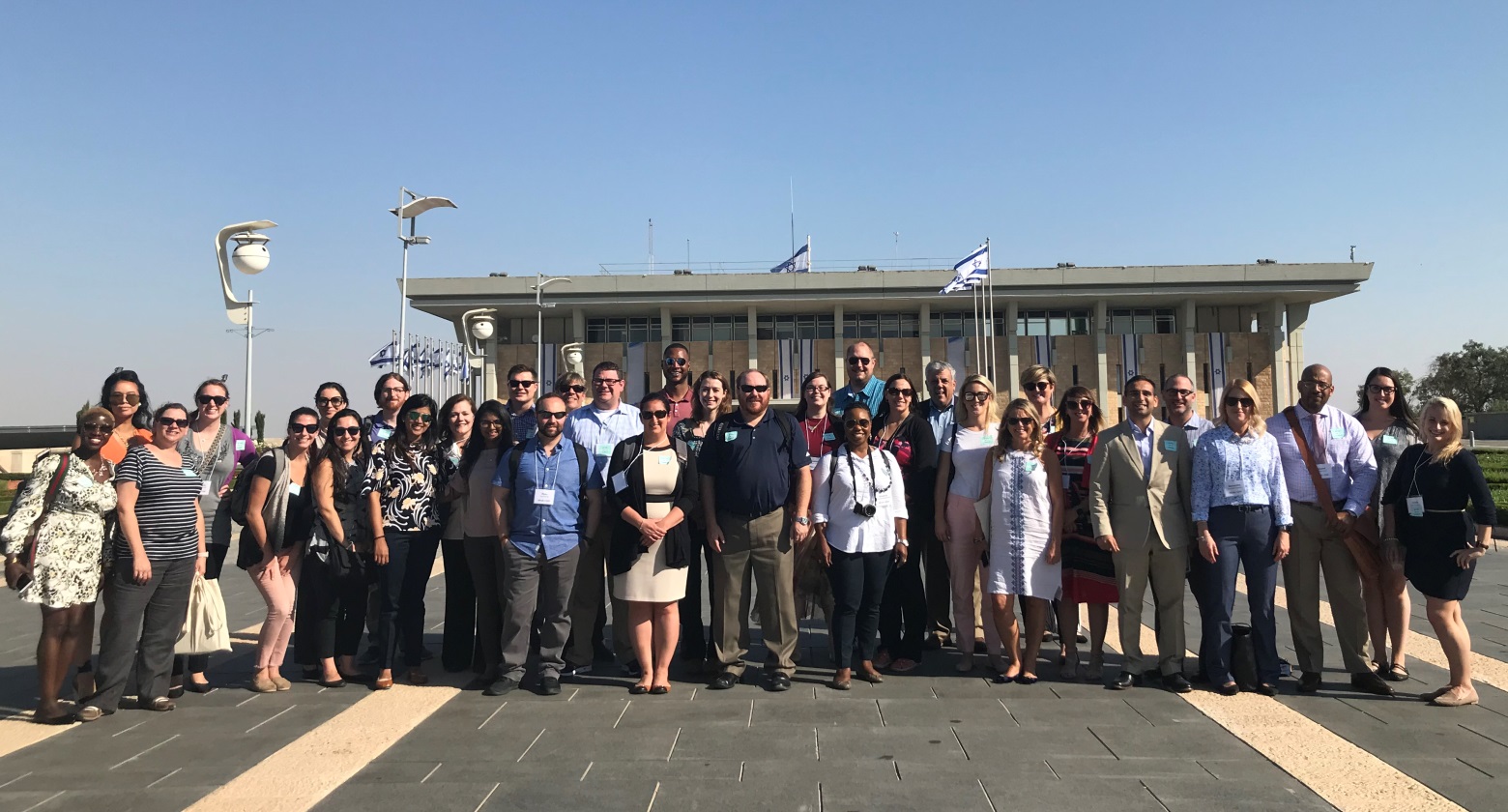Students in the Milken Institute School of Public Health at the George Washington University’s MHA@GW program are required to attend a total of four immersion experiences while enrolled in the program. Recently, Leonard H. Friedman, PhD, FACHE, director of the MHA@GW program, traveled with 30 students to Israel for an intensive, 5-day course. Here are his observations about why Israel is an excellent site for studying health policy and management, who was involved in this year’s program, and what students learned. Why? Why did we decide to take 30 students in MHA@GW’s Health System Analysis Immersion students to Israel to spend a week examining their healthcare delivery system? After all, there are many other systems that are geographically closer, provide service to a larger population, and do just as good a job caring for their citizens. Why take our students to a part of the world that (according to popular opinion) is unsafe, under constant threat and mistreats a large number of persons under their control? The answer is simple. There are few healthcare delivery systems anywhere in the world that experiences the sorts of external and internal environmental pressures felt daily by Israel. Despite these numerous pressure points, Israel provides a system that guarantees a comprehensive basket of health services to all citizens and permanent residents at a cost of 7.4% of GDP (OECD, 2017) with a set of public health outcomes that are among the best in the world. As if this were not enough, Israel is the epicenter of one of the most interesting historical and religious locations anywhere.How? Designing any MHA@GW Immersion experience requires a prominent level of local knowledge and logistical management. While I had been to Israel in 2011 and 2013 with groups of residential GW students, this was the first time with our adult learners, all of whom have extensive experience in the health sector. To make this three-credit class valuable to these students, we worked with Dr. David Chinitz, Professor of Health Policy at the Hebrew University Hadassah Braun School of Public and Community Medicine. Dr. Chinitz is one of Israel’s foremost experts on the organization and funding of health services. Dr. Chinitz called on colleagues and contemporaries from his extensive network to design a series of site visits to acute care hospitals, primary care clinics, local health departments, health policy institutes and a visit to Israel’s legislative assembly, the Knesset, where we met with two elected legislators. In addition to Dr. Chinitz, Ms. Dafa Bibi, Secretary of the Department of Family Medicine and Health Economics, provided important logistical support. On our side of the Atlantic, as well as in Israel, Christina Fenton and Ann Rich made sure that every part of the experience went off without a hitch thanks to their expert planning and management skills.What? Given that this Immersion is a three-credit course, the choice of what we would see, who would meet with our students and what readings/writing would be assigned were of paramount importance. The overall objective was to provide our students with the opportunity to experience the Israeli health care delivery system first-hand. Rather than just read about this system (and there was plenty of reading), the faculty decided to combine meeting key thought leaders, senior administrators, clinicians and others with two site visits each day. Our base of operations for the class was the Herbert Samuel Hotel in Jerusalem. While the schedule of visits was a function of the availability of the persons approached by Dr. Chinitz, we strived to give our students an honest and in-depth examination of Israel’s health care delivery system. At the end of each day, we spent an hour reflecting on what we learned and experienced.Read about what we did on our first three days here.Read about our final two days, plus a wrap-up, here.Leonard H. Friedman is a Professor in the Department of Health Policy and Management and is the Director of the Executive Master of Health Services Administration (MHA@GW) program. Dr. Friedman is a Fellow in the American College of Healthcare Executives and an expert on the mechanisms of organizational change and strategic decision-making in health service organizations. He joined GW SPH in 2008 from Oregon State University, where he was professor in the Department of Public Health and coordinator of the school's health management and policy programs.
Blog: Learning About Health Management and Policy in Israel
July 31, 2018


